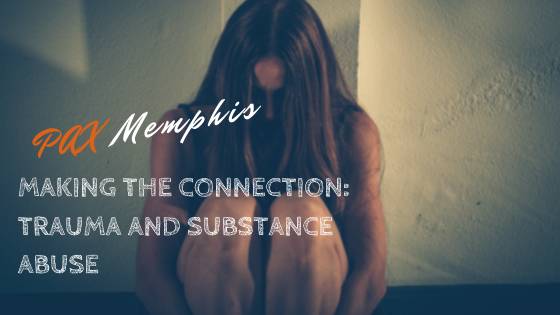Experiencing a traumatic event is one of the most difficult challenges to overcome. After all, trauma can leave a lasting impact on an individual’s mental health and overall wellbeing. Exposure to trauma varies from person to person, ultimately resulting in a number of long-term consequences. Unfortunately, many individuals may cope with the remnants of their traumatic experiences by self-medicating with drugs and alcohol.
Trauma and addiction have a complex and intertwined relationship. Therefore, it is very important to address both conditions simultaneously in order to cultivate complete healing and long-term recovery.
Identifying Trauma
Identifying and defining trauma can be very complicated. A traumatic event can vary from person to person which is why it is important to tread lightly when defining this disorder. The Substance Abuse and Mental Health Administration (SAMHSA) defines trauma as:
“Individual trauma results from an event, series of events, or set of circumstances experienced by an individual as physically or emotionally harmful or life-threatening with lasting adverse effects on the individual’s functioning and mental, physical, social, emotional, or spiritual well-being.”
The most important piece of this definition is “experienced by an individual”. Trauma is not a specific event but rather based on how an individual perceives or experiences the event. This complex idea is how two individuals may experience the same traumatic event such as a car wreck, abuse, or natural disaster, but come out of the experience with varying degrees of trauma or distress. Examples of potentially traumatic events may include:
- Divorce
- Abuse
- Neglect
- Car Accident
- Bullying
- Witnessing Abuse
- War
- Natural Disasters
- Loss of Employment
- Death
Trauma may include any distressing event including being the victim of a crime, being diagnosed with a chronic illness, to witnessing a traumatic event. Regardless of the event, trauma is characterized by the lasting effects on the individual. In some cases, an individual may not recognize they are suffering from trauma.
Responses to Trauma
Denial and shock are common reactions to trauma. However, there are several other emotional responses to trauma that may manifest over time. These specific responses may vary based on the individual and may include:
- Anxiety
- Vivid Flashbacks
- Depression
- Isolating Behaviors
- Feelings of Hopelessness
- Feelings of Impending Doom
- Mood Swings
- Hypersensitivity
- Difficulty Concentrating
- Nausea/Headaches
- Emotional Dissociation
- Difficulty Sleeping
Some people may be able to cope with trauma, only experiencing short effects of the trauma. However, others may have a more difficult time trying to cope, ultimately turning to mood and mind-altering substances to mitigate the aftermath of trauma.
The Link: Trauma and Substance Abuse
It is not uncommon for people to self-medicate with drugs and alcohol to cope with unwanted emotions. Consequently, this is especially true for survivors of trauma. After all, severe emotions associated with trauma can be terrifying and paralyzing. These overwhelming emotions may provoke an individual to turn to drugs and alcohol to mitigate the unpleasant experience.
Trauma and substance abuse are two very complex and severe conditions that often perpetuate and exacerbate one another. Exposure to trauma increases the likelihood of developing a substance use disorder, just as addiction may increase the chances of an individual encountering trauma due to the risky behaviors associated with substance abuse.
- According to a recent survey, nearly 70% of people who seek treatment for substance use disorder have a history associated with experiencing trauma.
- Individuals who abuse substances before experiencing a traumatic event have a harder time dealing with the stress of trauma – ultimately exacerbating the cycle.
- According to a study, 59% of individuals suffering from PTSD, subsequently suffered from a substance use disorder following prior trauma.
The Solution: Trauma-Informed Care
In order to prevent further harm and potential relapse, it is vital for the individual to work with treatment professionals to devise a treatment plan addressing trauma and substance use disorder. Mental health and addiction professionals can collaborate to assess and properly treat trauma and addiction simultaneously as well.
However, addiction therapy and trauma-informed care is not a one-size-fits-all solution. Therefore, it is quintessential to construct an individualized treatment plan specific to addressing the unique needs of each individual. Common difficulties faced by individuals exposed to trauma may include:
- Repressed or fractured memories of the event
- Holding onto paralyzing fear
- Experiencing severe trust issues
- Feelings of guilt, shame, or blame for their experience with trauma
- Fear of discussing traumatic events
Trauma-informed care works to establish trust and security for the survivors of trauma while also addressing substance abuse issues. In addition, this specific type of therapy focuses on safety, peer support, transparency, and empowerment to help the individual heal from their experiences with trauma.
Identifying and addressing the underlying causes of an individual’s addiction and healing traumatic emotions from the past is vital to maintaining long-term sobriety. Pax Memphis is a dual diagnosis treatment center, in Memphis, Tennessee, that focuses on both mental health and addiction. Trauma survivors will meet with our clinical team to be evaluated and to move forward in constructing an individualized treatment plan that best fits his/her individual needs. Additionally, treatment plans for our clients struggling with trauma and substance use disorder consist of cognitive-behavioral therapy, dialectical behavior therapy, individual therapy, group therapy, holistic therapy, and trauma-informed care.
The first step to recovery is admitting you have a problem and be willing to accept the help you deserve.
Medically Reviewed: September 25, 2019

All of the information on this page has been reviewed and verified by a certified addiction professional.










